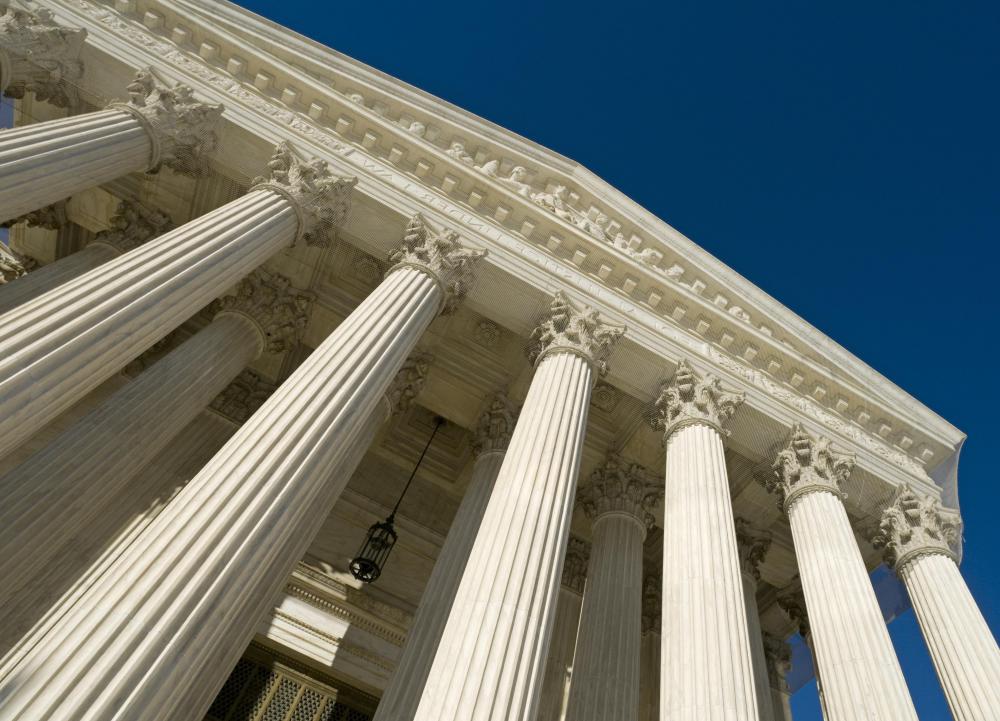At MyLawQuestions, we're committed to delivering accurate, trustworthy information. Our expert-authored content is rigorously fact-checked and sourced from credible authorities. Discover how we uphold the highest standards in providing you with reliable knowledge.
What is Supreme Court Jurisprudence?
Supreme Court jurisprudence means how the Supreme Court interprets the law in the light of the US Constitution. Some cases that go before the Supreme Court of the US include injustices that seem to have affected the defendant's Constitutional rights. It is expected that the Supreme Court would correct the wrong that was done, giving justice to the defendant. However, the Supreme Court cannot administer justice to individuals because its exclusive responsibility is to interpret the US Constitution and decide whether the state and federal laws uphold it. The Supreme Court jurisprudence is only responsible to ensure that Supreme Court law is passed and managed in ways that conform to the US Constitution.
The Supreme Court hears cases that raise a constitutional issue. The court, therefore, hears only such cases wherein some clause, principle or issue of the Constitution is brought up. The Supreme Court decides what it will hear. There are nine Supreme Court judges, and when at least four of them vote to grant a hearing to a case, that case will come up for the court hearing. However, only about 10% of the cases referred to the court are accepted, averaging about 90-100 cases per year.

The majority of the cases begin in the state courts and oftentimes move from the city or the county court upwards until they reach the state high court. From there an appeal can bring a case directly to the Supreme Court in order for the Supreme Court jurisprudence decision to be made. A case which involves a federal law, and begins in the federal district court, can move up through the regional Court of Appeals and then reach the US Supreme Court. To determine who has won and lost the final round in the history of the case in the Supreme Court, two things are to be noted and are considered important.

The case could be titled A vs. B, when it comes up for hearing by a Supreme Court judge. Here, it is understood that in the lower court, where the case was last heard, the verdict went in favor of B, or in other words, A lost the case. The petitioner, the entity or individual that lost the case in the lower court is always listed first in the Supreme Court cases. What transpires in the Supreme Court are arguments regarding the case that are mentioned at the end of the case report. The Supreme Court jurisprudence will either affirm or reverse the lower court's ruling.

If the Supreme Court affirms the ruling, it means that B has won once again. If it reverses the ruling of the lower court, then A has now won the case. The US Supreme Court is not interested in the innocence or guilt of those accused and convicted in crimes. The Court merely ensures that the laws that are created are administered in ways conforming to the US Constitution, which is the definition of Supreme Court jurisprudence.
AS FEATURED ON:
AS FEATURED ON:














Discuss this Article
Post your comments